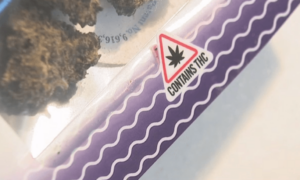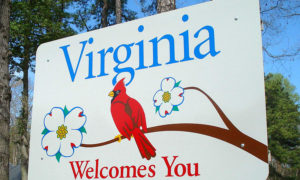
MMJ businesses pay more than double the fees liquor establishments do. – FILE PHOTO
It may soon get even pricier to be in the marijuana business. The city’s medical marijuana working group is mulling whether to hike licensing fees. The current fee schedule hasn’t been adjusted since 2011, so it’s now under review at the request of city departments strained by the demands of an industry that’s grown considerably since then.
Additional revenue would go, in part, toward hiring another licensing enforcement officer to share the reportedly hefty workload coming from the marijuana industry. According to City Clerk Sarah Johnson, adding another position would let city licensing officials do more face-to-face site visits, provide quicker and better service overall, and bring Colorado Springs’ medical marijuana licensing team up to staffing levels more proportionate to other cities’.
The current proposal would have the application fee rise from $2,200 to $2,500 (even though there’s still a moratorium on new licenses) and the renewal fee from $1,800 to $2,600. That would apply to all medical marijuana businesses, to include storefronts, grows and edibles manufacturers, of which there’s currently a total of 356. In 2016, these fees raised about $665,000 in revenue. The city spent about $17,000 more than that on regulation, licensure and enforcement related to the industry, which represents 97.5 percent cost recovery — better than, say, planning and development’s rate, but still not cost-neutral.
Businesses aren’t exactly itching to pay more though.
“I’ll tell you right now, the reception to this is not going to be favorable,” A Wellness Centers owner Tom Scudder told his colleagues on the working group at their meeting on Friday, April 7. “Most shops in this town are already struggling — it’s just the reality.”
City staff didn’t seem willing to consider Scudder’s suggestion to scale back licensing services to what’s affordable under the current fee schedule, rather than raise fees to offer more services. “I think we’re being reasonable,” Chief of Staff Bret Waters told Scudder, arguing that the financial analysis that yielded this recommendation aims for 100 percent cost recovery, i.e., businesses pay for all the costs associated with their own licensing.
Scudder asked the obvious: “I know since we’re such a new industry, everyone’s comfortable charging us a lot of fees. But, I have to ask, is cannabis being asked to pay its fair share or more?”
Liquor licensing, for example, is regulated at the state level such that the city can’t impose fees that would yield 100 percent cost recovery. Development fees, too, have historically been insufficient to account for the actual costs accrued — whether they be indirect, long-term, or right there in plain sight, like infrastructure expansion and maintenance.
City staff maintained that yes, it is fair, because all business licensing fees are slated for review and potential adjustment over the next year. Medical marijuana businesses are just going first. Colorado Springs’ fees will still be lower than Denver’s, Boulder’s and Pueblo’s and medical fees are generally much lower than those on the recreational side (which we don’t offer here — for now).
A new member of the working group, Santiago Guerra, a Colorado College professor specializing in drug policy, postulated a possible market impact: “As you increase fees, those that can’t afford it would have to fall out, which would leave those businesses left to get greater revenue. … So, might there be representatives from the industry that favor higher fees, like the LivWells, because it cuts out the competition?”
Scudder, who represents the industry on the group, agreed that “consolidation has been happening for years now. It exists in many forms, but it’s increasing in pace.” City staff had no comment on the matter.
The group will revisit the topic at their next meeting on May 18 at 3 p.m. (timed so marijuana business owners don’t have to worry about fee hikes during 4/20 season). Concerned business owners and other parties are invited to attend.
Link – Colorado Springs Independent. Article by Nat Stein




































